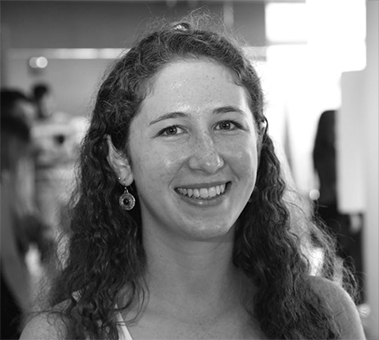Emily Cohen
 Wingfield Laboratory
Wingfield Laboratory
Department of Psychology
Brandeis University
Investigating the Effect of Self-Paced Listening on the Relationship Between Hearing Acuity and Speech Recall
Poster Abstract
Increased perceptual effort, due to hearing loss or difficult listening conditions, negatively affects listeners’ comprehension and recall performance — even when the words are audible. However, former PhD student Tepring Piquado demonstrated that allowing young adult listeners with mild-tomoderate hearing loss to control the speed of auditory input by self-pacing through passages ameliorates this negative effect of poor hearing acuity on recall. The current study investigates this effect of self-paced listening on poor recall in both young and older adults. Four passages are presented to the young and older adult listeners in self-paced or continuous conditions. In the continuous condition, passages play continuously from beginning to end; in the self-paced condition, passages pause after each sentence and allow the listener to continue at their own pace. Two passages are presented at +10 dB from the listener’s speech reception threshold (hard-tohear) and two at +25 dB (easy-to-hear). After each passage finishes, listeners are prompted to begin their free recall of the passage with as much detail as possible. Each listener’s recall is analyzed for amount and degree of detail recalled using propositional analysis (Peelle, et al., 2015). While data are still being analyzed, recall of the self-paced listening condition presented at the easy-to-hear level is expected to be more accurate and more detailed than the continuous listening condition at the hard-to-hear level. These results are expected to have a greater effect for older adults than young adults.
Personal Statement
I have worked at the Memory and Cognition Lab for about a year and a half. I joined during the second semester of my sophomore year, long before officially declaring my psychology major, and it amazes me how much my experiences there have shaped me, both academically and personally. Never having worked in a lab before, I learned everything from organization of data and working with participants to experimental design and excel functions; everything that goes into the setup and execution of an experiment. Having the opportunity to build upon these experiences as a full-time research assistant under the M.R. Bauer Foundation fellowship this summer has provided me with irreplaceable and vital skills. I witnessed all of my hard work from the previous months come to life as an active experiment, and as the attention turned from creating stimuli and organizing trials to running participants and analyzing data, I found myself taking immense pride in this research that I had been a part of since its early stages. I enjoyed running participants, both young and old, seeing them work their way through each trial and condition, and talking to them afterward. I loved hearing their opinions on the experiment, what they found to be helpful, how they perceived all of the stimuli being presented to them. Being a typically more reserved person, having to interact with a complete stranger for an hour and a half — whether giving them instructions, making small talk during breaks, or dealing with any of the inevitable “technical difficulties” that would arise — was initially a challenge for me. As the summer wore on, I became significantly more comfortable with participants, and more confident in myself. I no longer had to check the manual to set up the audiometer or use the script to make sure I touched upon every important point. Interacting with my peers in the lab was another exceptional experience. There was never a shortage of people I could ask if I was confused or unsure about something, or simply if I needed an extra set of eyes. I always felt free to ask questions, and always received an honest and helpful answer, which is truly essential as an undergraduate in a lab. The number of things I have learned this summer is infinite, and I am sure that the experience and confidence I have gained as a result will follow me in all my future endeavors, from this lab and my eventual thesis and beyond.